Abstract
The modern library, a term that was heard frequently in the mid-twentieth century, has fallen into disuse. The over-promotion of computers and all that their enthusiasts promised probably hastened its demise. Today, networking is transforming how libraries provide--and users seek--information. Although the Internet is the natural environment for the health sciences librarian, it is going through growing pains as we face issues of censorship and standards. Today's "modern librarian" must not only be adept at using the Internet but must become familiar with digital information in all its forms--images, full text, and factual data banks. Most important, to stay "modern," today's librarians must embark on a program of lifelong learning that will enable them to make optimum use of the advantages offered by modern technology.
Full text
PDF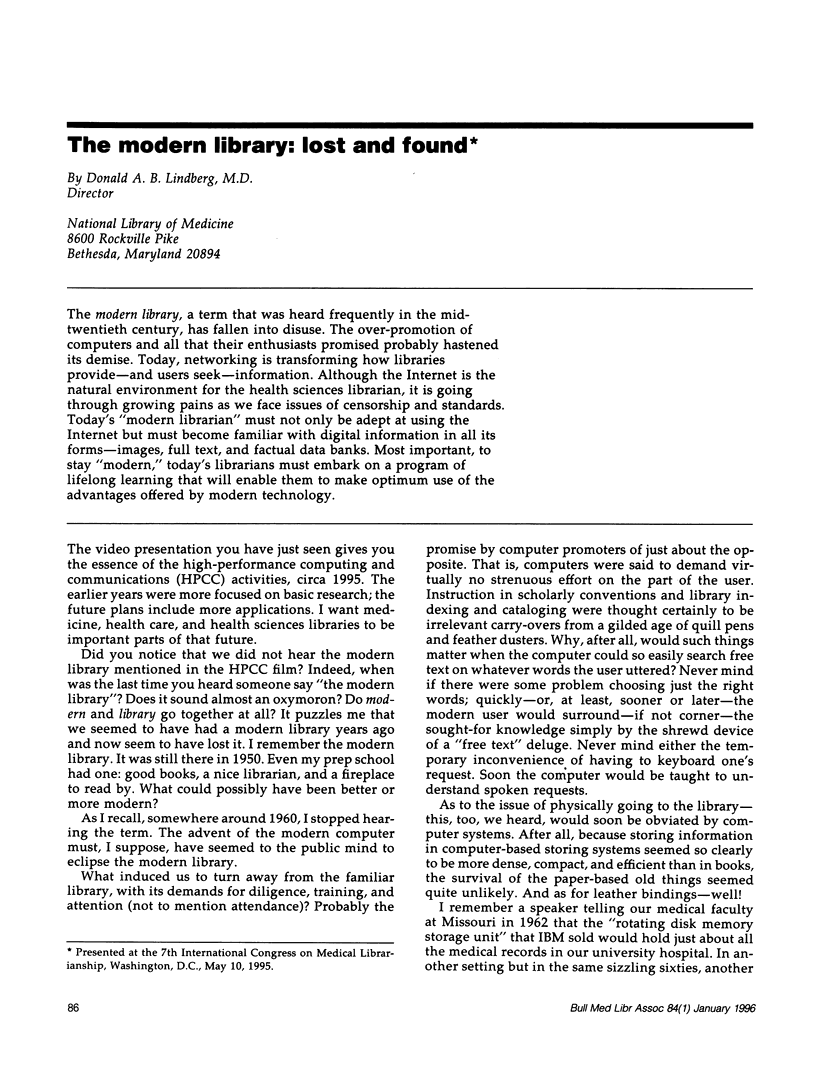
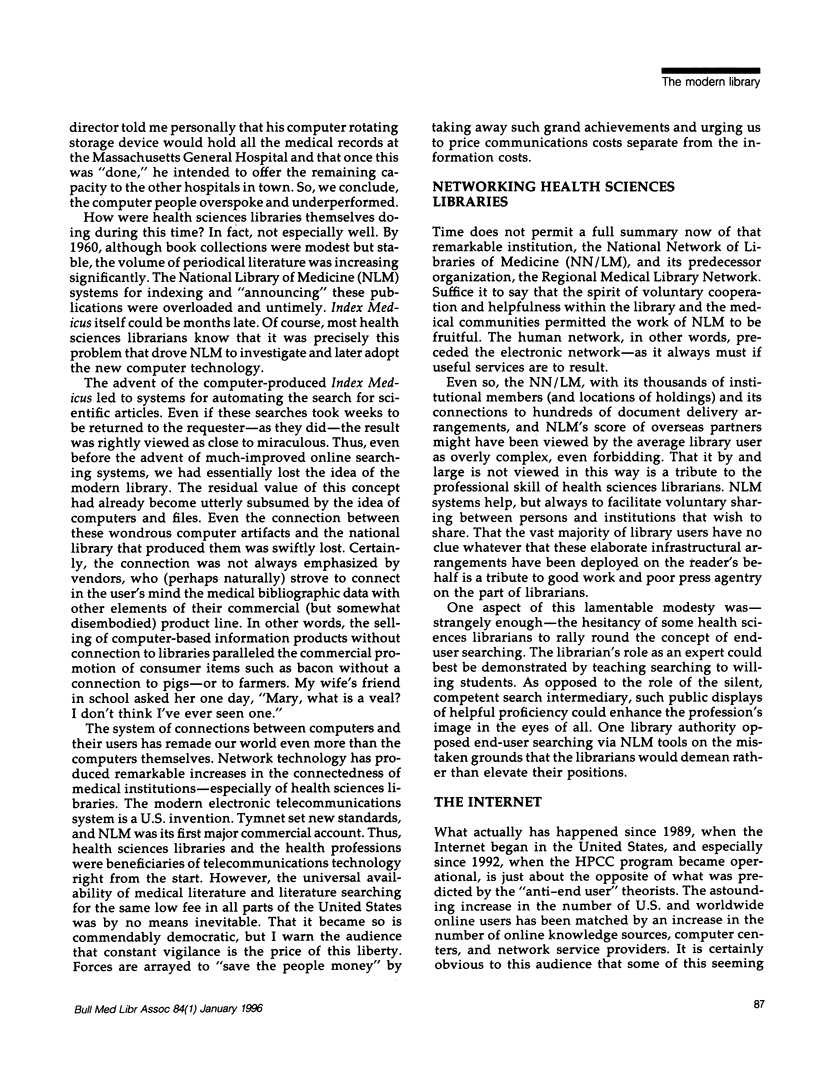
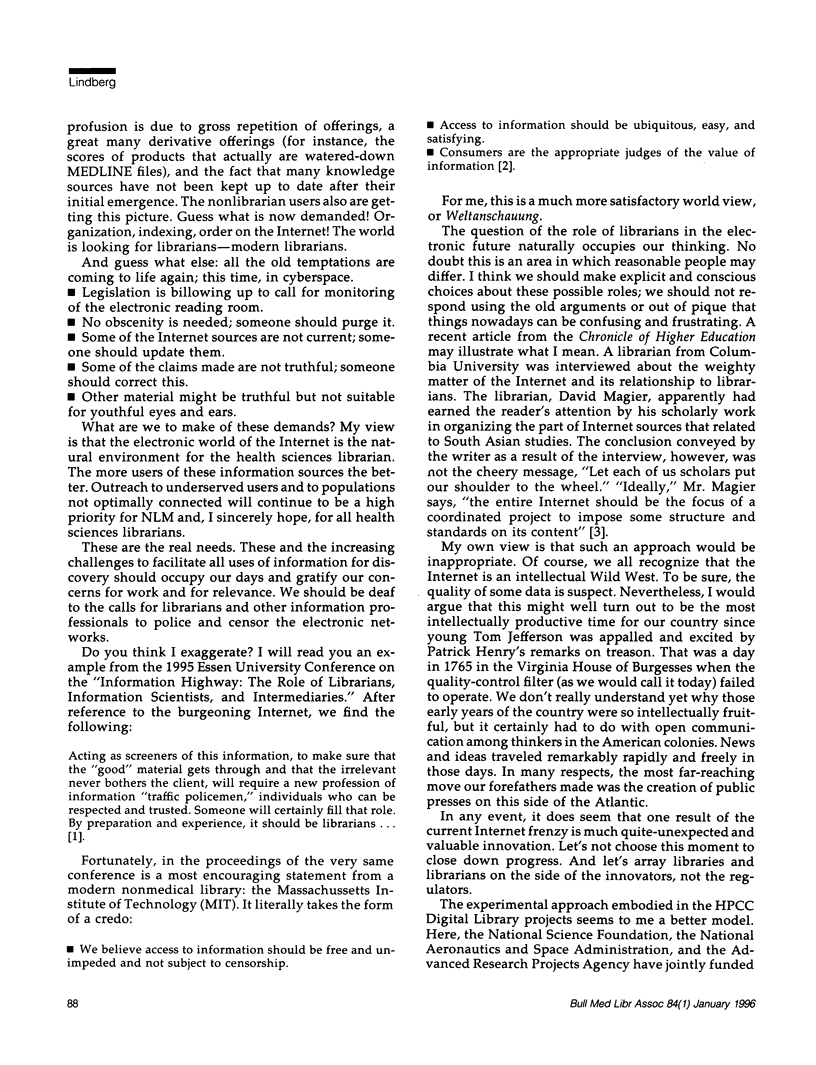
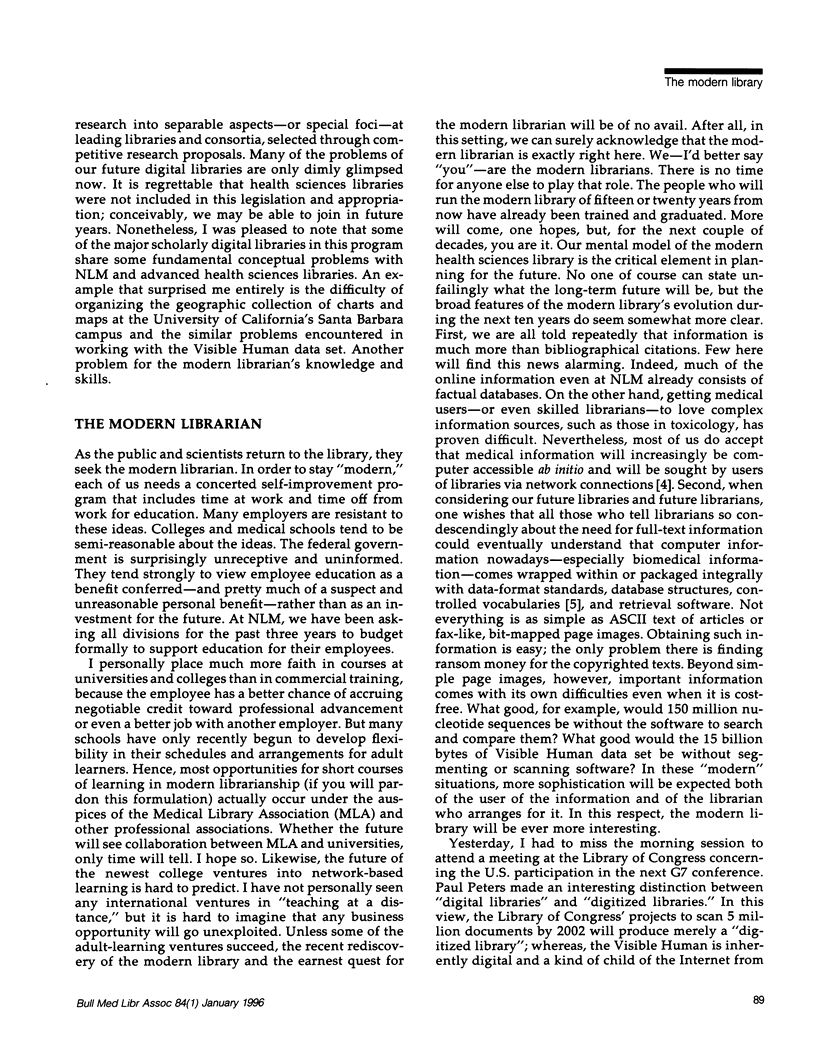
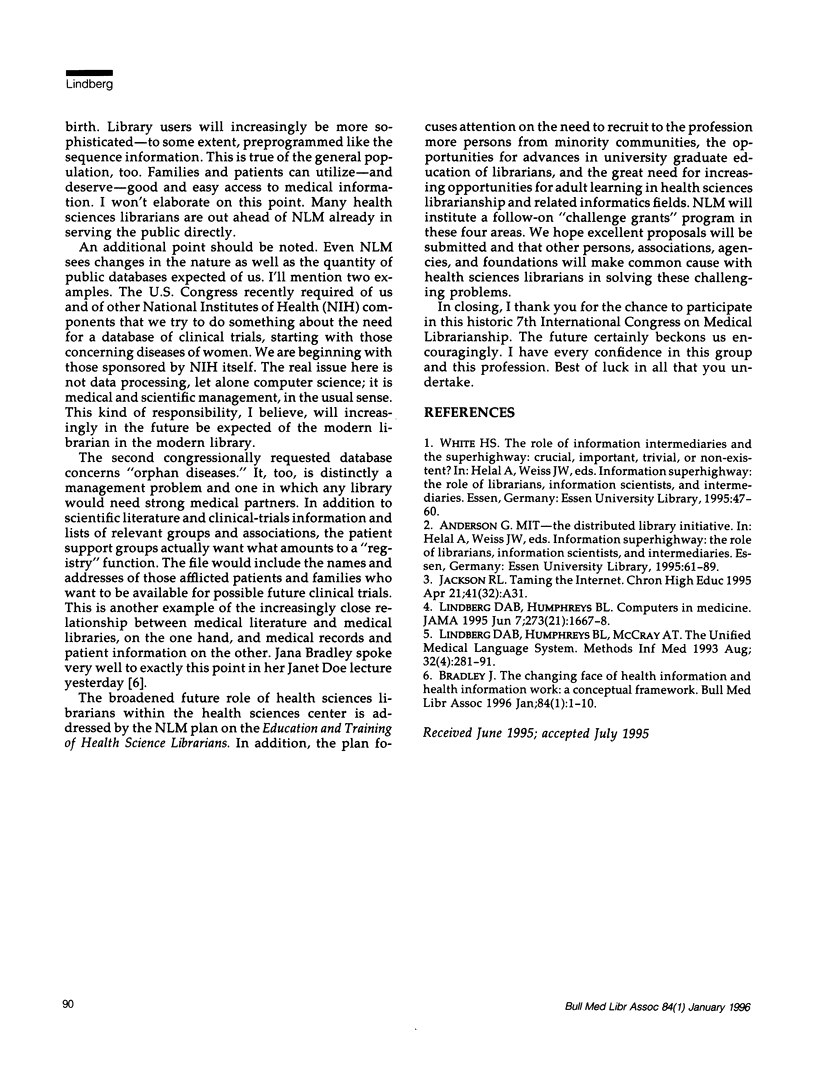
Selected References
These references are in PubMed. This may not be the complete list of references from this article.
- Bradley J. The changing face of health information and health information work: a conceptual framework. Bull Med Libr Assoc. 1996 Jan;84(1):1–10. [PMC free article] [PubMed] [Google Scholar]
- Lindberg D. A., Humphreys B. L. Computers in medicine. JAMA. 1995 Jun 7;273(21):1667–1668. [PubMed] [Google Scholar]
- Lindberg D. A., Humphreys B. L., McCray A. T. The Unified Medical Language System. Methods Inf Med. 1993 Aug;32(4):281–291. doi: 10.1055/s-0038-1634945. [DOI] [PMC free article] [PubMed] [Google Scholar]


